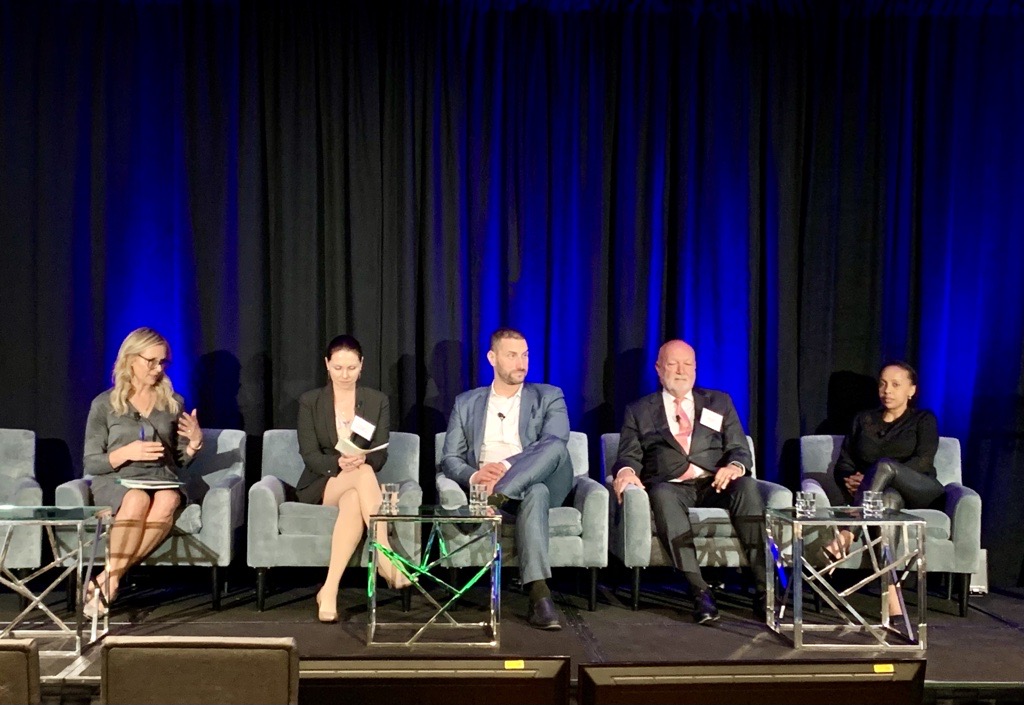The US-China relationship is challenging but remains the most consequential bilateral relationship today. And specifically, in the climate space, it is imperative that both countries address issues domestically and find common ground for collaboration to serve as a catalyst for global climate action. As the biggest economies, carbon emitters, consumers and producers of energy, they are well-positioned and play an outsized role in this undertaking.
With that context serving as the main themes of the US-Asia Institute’s US-China Regional Dialogue Series focused on innovation in energy, the environment, and sustainability, Deborah Lehr, Vice Chairman and Executive Director of the Paulson Institute, moderated a thought-provoking interesting panel on private sector innovations as part of the event. The half-day of programming on March 2, 2022, also included key remarks from various US and Chinese stakeholders and sessions exploring the innovations in traditional energy, corporate sustainability, green finance, renewables, and next-generation technology.
Cracking the climate nut will require private-sector action as governments are limited in their funding. This is true for the US and for China. The good news is the uptake of climate and sustainability issues in the private sector has already begun with many large players setting net zero or carbon reduction targets, the growth of the green bond market, and environmental, social, and governance (ESG) concerns rising for companies.
 But do we have the technology to get us to net zero? Are there areas of cooperation for the two countries? The distinguished panel of experts including Katarina Tesarova, Senior Vice President and Chief Sustainability Officer, Sands, Adam Kramer, CEO, nZero, Mitch Jackson, Staff Vice President, Environmental Affairs & Chief Sustainability Officer, FedEx Corporation, Sara Menker, Founder and CEO, Gro Intelligence, and Edward Russo, CEO, RussKap Holdings focused on these questions to begin the conversation.
But do we have the technology to get us to net zero? Are there areas of cooperation for the two countries? The distinguished panel of experts including Katarina Tesarova, Senior Vice President and Chief Sustainability Officer, Sands, Adam Kramer, CEO, nZero, Mitch Jackson, Staff Vice President, Environmental Affairs & Chief Sustainability Officer, FedEx Corporation, Sara Menker, Founder and CEO, Gro Intelligence, and Edward Russo, CEO, RussKap Holdings focused on these questions to begin the conversation.
The discussion was lively as speakers represented various sectors, providing diverging viewpoints on the existence of technology now to tackle the climate challenge. However, all agreed that cooperation between the US and China is an opportunity waiting to be capitalized on. Some of the other themes highlighted include:
- The business of climate will be a driver of economic growth. While estimates of the opportunity to help China achieve its carbon peak and neutrality goals vary, it is sufficient to say there is a significant multi-trillion-dollar potential. And since the US has cutting-edge technologies in various climate segments, the prospect of deploying technology in the Chinese market is not farfetched.
- The issue of climate change is one that will require a broad coalition of stakeholders, especially the US and China. The leadership of the biggest economies and emitters could potentially help create the political will necessary to encourage even more private sector engagement on climate, crowd in more funding for climate technologies, and drive scale to accelerate decarbonization. There is ample room for collaboration and cooperation, but with a clear-eyed appreciation for inherent competitive elements.
- Businesses today are carefully and creatively thinking through how to implement their own net-zero goals. For sectors like hospitality and logistics, that means implementing concrete and actionable items at scale across their footprints to ensure meaningful impact. It also means investing in the development of future technologies by working with solutions providers, manufacturers, and research institutions.
- Areas of progress for climate data in terms of accuracy, objectivity, reproducibility, and transparency remain. Data that can be characterized as such would help provide financial markets with good information to finance the transition to net zero as there is much more green finance needed to accelerate climate action. It would also be a building block for greater understanding needed to formulate policies and for creating the education and awareness needed for important action.





